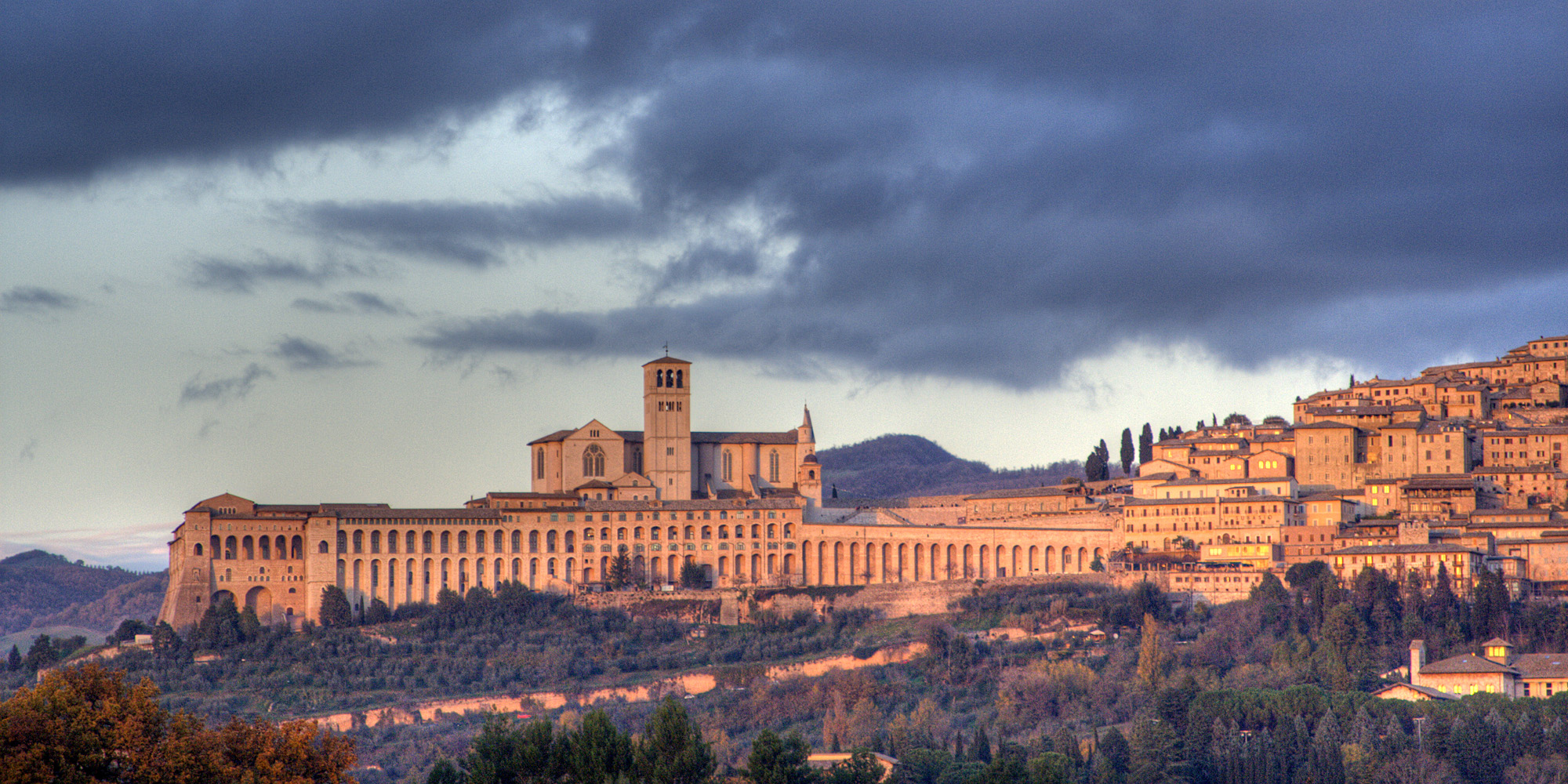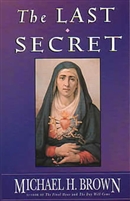[From The Last Secret]:
Sweet was the grace descending upon a mountain village in Italy.
The name of the place was famous but few realized the extent of its phenomena.
There were more marvels than anywhere since Jerusalem.
It was like a membrane between two dimensions.
Located about 100 miles north of Rome, Assisi was a fortified city-state and after the fall of the Western Empire it’d suffered invasion by the barbarians and now steeled itself against Turks and closer enemies like Emperor Frederick II, who was moving against towns in the region and was so feared there were those who thought he was the Antichrist.
In that tense and chaotic time, in that time of new crisis for the Church, had come an extraordinary monk named John Bernardone.
Because his father, a wealthy merchant, spent much of his time in France, he was nicknamed Francis, which meant “Frenchman.”
Captured during a battle between the cities of Perugia and Assisi, Francis had borne the captivity with precocious patience and also a subsequent illness that seemed to be a preparation for his conversion. That transition had come when Francis heard a locution tell him to “serve the master instead of the man.”
Filled with the Holy Spirit, Francis had given away all his earthly possessions and replaced his worldly activities with prayer.
A friend of Saint Dominic, whom he met in Rome, Francis was also the receiver of locutions that seemed to fall on Assisi like pleasing rain.
He had been praying in a tottering little field chapel one day when out of a Byzantine Crucifix came a voice that said, “Now go hence, Francis, and build up my house, for it is nearly falling down!” (How many of us do that, instead of verbally tearing at it?)
Francis had taken the message literally and set about rebuilding the little church but soon was rebuilding the entire Christian institution through establishment of the great religious order we know as the brown-clad, sandal-shoed Franciscans.
They spread faith where there was doubt and miracles where there was rationalism.
They renounced “self” and replaced it with service to God.
Here was a huge secret that the Virgin harbored: renunciation and detachment from self, setting self to the side and aiming only for what God wanted, brought permanent satisfaction and peace. There was no other way.
There was no way to lasting inner calm but by attaining the deepest level of humility, which was self-renunciation.
Such detachment brought many consolations and Francis himself, a master of selflessness, was like a walking site of apparitions. Not since the first century had there been such a great mystic.
Many were those who witnessed the miraculous power of his humble prayer, his selfless prayer, or actually saw him in conversation with celestial entities. Secretly following Francis into a woods, one young man suddenly heard unusual voices and was amazed to see Francis surrounded by a light which contained the forms of Christ, John the Baptist, and Mary.
The same was witnessed by fellow monks, but most renowned was the stigmata Francis suffered, actual bleeding wounds in the feet and hands that resembled those of Christ and had come at Mount Alverna when he was fasting in honor of Mary (and the Archangel Michael). They were imprinted by a seraph with six flaming wings and during that historic event witnesses claimed Mount Alverna — like Pochaiv in Ukraine — looked like it was on fire.
To those like Francis who meditated on Mary and knew her power it came as no surprise that her apparitions and her fire increased as the spiritual war continued to take an ominous turn. Francis had heard it. He’d heard the enemy. He’d even seen the demonic face. In the evenings during lonely prayer, in the chapel or in a cave, it would seem like someone was behind Francis as he wandered in prayer or like a horrid head was looking over his shoulder.
“Then he would hear voices in the storms whistling through the mountain forests, the demons would laugh at him, while the owl screeched outside his cell,” writes biographer Jáhannes Jorgensen. “But worst of all was the almost inaudible whispering which, in the deathlike stillness of the hours of the night, would sound in Francis’s ears, as if whispered by hateful and spiteful lips…”
The world was a dangerous place, truly a testing ground. Every century had its evil, but there were centuries and times when the evil seemed to reach a peak and it was just such a time. Events continued to build toward some kind of climax. Evil was in the wind and so was chastisement.
“Out of the sea rises up the Beast, full of names of blasphemy who raging with claws of the bear and the mouth of the lion and the limbs and the likeness of the leopard, opens its mouth to blaspheme the Holy Name and ceases not to hurl its spears against the tabernacle of God and against the saints who dwell in heaven,” wrote Pope Gregory in a nearly frantic encyclical when Frederick challenged the papal state and the pope himself.
Such upheaval made the tranquility of Francis all the more remarkable and was itself proof that the monk was in touch with otherworldly force. His refuge was Mary but he didn’t make a big deal over every apparition. He treated such phenomena as nearly routine. He never sought to stand out, he certainly never did that, he was like his patroness the Virgin. There was a hiddenness while on earth. As it said, “God has glory in what He conceals” (Proverbs 25:2) and what He is thanked for.
Francis taught that “when God’s servant receives comfort from God in prayer, he should, before he ends his praying, lift up his eyes to Heaven and with folded hands say to God, `Lord, Thou hast sent Thy comfort and sweetness from heaven to me an unworthy sinner. I give them back to Thee again, that Thou mayest keep them for me!'” He was a mystic the likes of whom come only once or twice a millennium and holiness, self-denial, and strict adherence to religious strictures opened the portal of wonders.
No one could come to the knowledge of heaven, taught Francis, but through humbleness.
Heaven wanted a bowing of the head as Mary so often was seen bowing her head, for humility with wisdom dismissed temptation.
What each one is in the eyes of God, that he is and no more, taught Francis, himself a servant, a preacher, a little monk who thought himself unworthy of the priesthood and thus was never ordained.
“I am the herald of the great King,” he explained one day when asked who he was by a gang of robbers who then beat him. A herald, nothing more. A pure vessel. He was closely in touch with the spirit of the Virgin, who hovered all over Assisi, where a great basilica would one day rise called St. Mary of the Angels.
[resources: The Last Secret]



